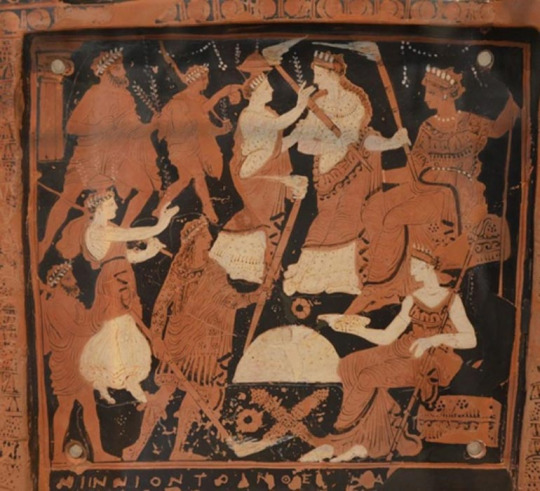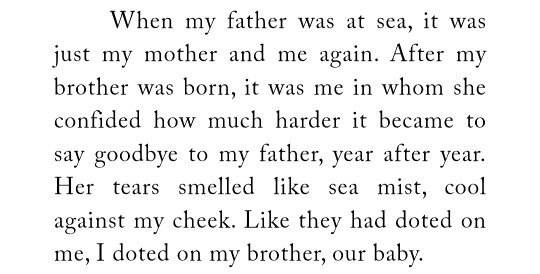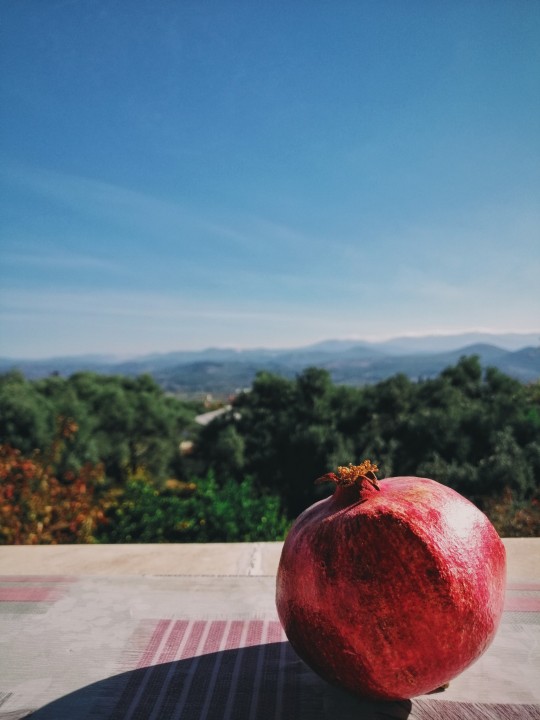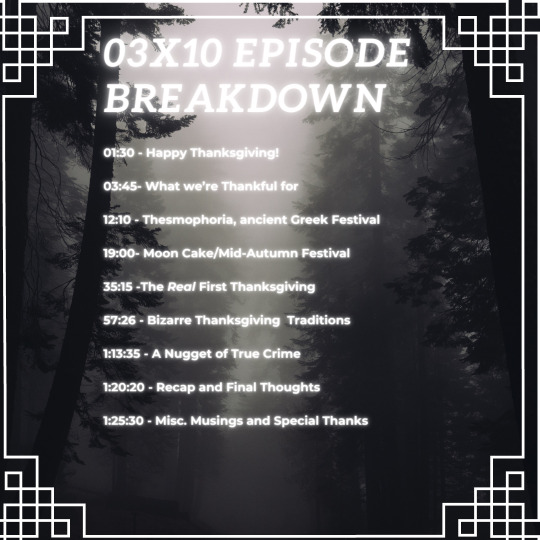#thesmophoria
Note
Do you know of any good resources on ancient Greek festivals? Festivals like Thesmophoria.
So, THE chief book on Greek religion generally remains Walter Burkert’s Greek Religion. If you’re interested in the topic, buy yourself a used copy. (Linking to Harvard UP, but you can probably find a copy out there for $5 or less if you don’t mind highlighting.)
Although published in 1987, and while sections have been superseded by more recent discussions, this is STILL the go-to book as a starting place. It’s just an astonishing, encyclopedic collection of knowledge and Burkert’s students (and their students) still dominate the field of Greek religion.
Let me also add the Oxford Classical Dictionary. Now in it’s 4th ed. (2012), this is another critical book for anyone interested in the ancient world. Check it for the individual entries on gods and festivals. It may not have the most up-to-date information, but it’s solid and, again, comprehensive. The link goes to the online version to which you can subscribe, but there’s a paper version too. It’s been out long enough that a cheaper used copy is available.
As for Demeter and especially Persephone, prominent in the Thesmophoria, Ellie Makin Roberts put out the very important Underworld Gods in Ancient Greek Religion, which was sadly out of price-range for most in hardcover. The paperback is more reasonable. I’ve linked to Routledge’s site, but you can find it cheaper elsewhere. (It’s currently on sale at Amazon as of 2/22/23.) Incidentally, she has another book coming out on the Greek goddesses later this year. It’s not academic in the same way as that listed, but much cheaper, and I expect it to be quite good.
Routledge does have a “Gods and Heroes” series, btw, which I quite like. These little books, written by specialists, are aimed at undergrad audiences and/or interested others. They’re great. BUT they don’t have Demeter or Persephone yet.

Information on specific festivals is usually best searched (on JSTOR or Google Scholar) by the name of the festival. I did a real quick search and here are three:
Sarah Iles Johnston has an article in History of Religions 52.4 (2013), 370-401: “Demeter, Myths, and the Polyvalence of Festivals.” I’ve not read it, but given who wrote it, I expect it’s an excellent discussion. (I just downloaded the PDF to save for later myself.) You’d need access to JSTOR to read it, or you can probably order a single copy.
Froma Zeitlin wrote “Cultic Models of the Female: Rites of Dionysos and Demeter,” in Arethusa, Vol. 15, No. 1-2 (1982), 129-57. Again, have not read it, but the name alone recommends it, although it may also be somewhat dated now.
Last, Chris Faraone has “Curses, Crime Detection, and Conflict Resolution at the Festival of Demeter Thesmophoros” in The Journal of Hellenic Studies, Vol. 131 (2011), pp. 25-44. Once more, the name alone is a recommendation.
So I’d suggest poking through Google Scholar to find articles. Or, again, if you’re at a uni, use your JSTOR access. Do recall that Aristophanes wrote a comedy called the Thesmophoriazusae,” so a lot of articles may address that rather than the festival. While the play does provide some useful info on the festival, the usual caveats apply when using drama, and especially comedy.
There’s some cool work being done on Persephone in S. Italy too, at Calabria and (Italian) Locris. You might be especially interested in the Persephoneion there: her sanctuary. These are part of the Magna Graecia diaspora.
#asks#Persephone#Demeter#Thesmophoria#bibliography on Greek religion#ancient Greece#ancient Greek religion#ancient Greek festivals#Classics#tagamemnon
104 notes
·
View notes
Text
Today is a day of mourning. For me, as a Hellenic Polytheist whose Patroness is Persephone and is recently working with both Demeter and Dionysus, today was supposed to be a wonderful day. Today marks the first day of the three-day festival of Thesmophoria, a festival celebrating the change of seasons and the beautiful Earth and its fertility and ability to nurture us. However, instead of celebrating with positivity and gratitude, I am instead feeling defeated. Instead of praying in thanks, I am mourning with the gods. I feel devastated.
For those mourning like me, know you are not alone. Many people in the witchcraft sphere and in general feel broken too. Just know that your ancestors, your gods, your plant allies, your angels, your spirits, and the whole universe are with you. They are here with you. They are mourning with you.
#helpol#hellenic polytheism#thesmophoria#persephone#demeter#dionysus#cw: recent news#polytheism#gods#pantheon#ancestors#spirits#angels#archangels#plant allies
19 notes
·
View notes
Text


Thesmophoria, Melissa Febos
36 notes
·
View notes
Text
remember the Palestinian, Sudanese, Congolese and Hawaiian people this Thesmophoria
#Free Palestine#free hawaii#free sudan#Free the democratic Republic of Congo#free the congo#Thesmophoria#hellenism#hellenic polytheism#helpol#hellenismos
3 notes
·
View notes
Text
Hera's lettuce: women and the peculiar uses of flowers, fruit and vegetables in ancient Greek festivals for women
#plants#ancient greece#women#festivals#adonia#thesmophoria#anthesphoria#aphrodite#demeter#persephone#hera#medicinal plants#article
5 notes
·
View notes
Photo

On October the 31st we celebrate the Eight and last Sabbath of the Wheel of the year.
we celebrate Demeter and Persephone and the Thesmophoria,
we celebrate the sacrifice of the Horned God,
we celebrate the gods that reach the center of the labyrinth, the center of earth, the underworld, the womb of the mother, the place in which they die to reborn again.
This sacred moment generates a gate, the veil between our world and the underworld gets thinner creating a meeting between the two worlds.
We cherish the dead by putting lights and offerings outside the house and we put apotropaic symbols to protect it too.
From here to Yule there will be dark, silence and reflection so we let go what no longer serve us, we rest, we get ready for winter and for the new year to come.
#witchcraft#witchblr#paganism#pagan witch#strega#italianwitch#pagan festival#wheel of the year#samhein#halloween#thesmophoria#harvest festival#end of the year#labyrinth#season of the witch#witch#witches of tumblr#hellenic polytheism#sabbath#witches sabbath#jack o lantern#sacred#spirits#great godess#horned god#dark half of the year
47 notes
·
View notes
Text
Stenia
Not much is known about Stenia. It was thought to be celebrated only by women and they ritualized jest, obscenity, and insults. This would be the beginning of the purification for the Thesmophoria ritual that would be upcoming in a few days. The Bailers, a group of women designated this, would get the offerings thrown into the pit when they were thrown in at Skirophoria.
3 notes
·
View notes
Note
hi hi! what's Thesmophoria? I saw you post aboout it a few times and you said you celebrate a little differently...?
Khaíre, anon! Thanks for the ask, I love talking about this festival!
Thesmophoria was an ancient Greek 3 day festival held in October/November as a sort of pre-sowing ritual to ensure a good harvest the next year and honor Demeter and her daughter Persephone's return from Hades. Only women were allowed to participate, with some debate on if it was only married women who were allowed to attend. (note: there's evidence to show the festival was longer and at other times of the year in certain parts of ancient Greece. My knowledge for this answer comes from the Attic festival).

Painting by Francis Davis Millet
The three days were called Anodos (ascent, possibly alluding to Persephone's return from the Underworld), Nesteia (a day of fasting), and Kalligeneia (beautiful birth, also the name of Demeter's nursemaid). While the exact order of events and what day they fell on is a bit unclear, we do know there was a ritual sacrifice of piglets (or maybe pigs??) that were thrown into a pit and left to decompose. The pglets from the previous year were dug up and used as fertilizer for crops, mixed with baked cake symbols of fertility like snakes to ensure a bountiful harvest. (There is a possibility, however, that the piglets were thrown into the ritual pit during a previous festival earlier in the year. Again, so much information has been lost so different sources say different things). When seeds were sowed these remains were spread along with them and was supposed to ensure a bountiful harvest.
This festival was observed all over ancient Greece with regional variability, as with most other festivals. As a gardener and homesteader, this is probably the most important festival to me. My first reconstruction of it was three years ago and I'll be damned if that was not the most productive harvest I've ever had. I've been gardening with my mom since I was a wee tot so I'm not exactly lacking in the knowledge department there. Actually, seeing first hand the blessings of Demeter and Persephone was what really solidified my faith!
Over the last two years I've modified bits of the festival for my life. For example, I grow very little during the winter months due to the climate where I live (mostly cold tolerant greens) and I also do not have access to/want to sacrifice a piglet. So I've made some adjustments, which I'll outline below! My festival always happens the weekend of Mother's Day as that's when it's warm enough to plant the majority of my crops (a few seeds are sowed before this, but not many)
Day One: Anodos (Friday before Mother's Day)
I start my festival with a ritual bath to cleanse myself and my usual morning worship. I then gather all my seed packets/starts and gardening tools outside, where they will stay untouched until the end of the festival. I then offer a mixture of bacon grease and bones from the various pork servings I've had from the previous 2 months and bury them in a dedicated spot in my garden, making sure to remove the bones from the previous year, saving them for the next day. The rest of the day is spent outside preparing my garden beds, listening to nature, and planning what will be grown that year. (Note this is the first year I'll get to do all of this as I've usually had to work. Previous years this all happened in the afternoon after I got home - so rushed!!)
Day Two: Nesteia (Saturday before Mother's Day)
This day is actually fairly uneventful as it was a day of fasting. My fast starts at first light and is broken at last light. Today is the day I prepare the blessed fertilizer from the previous years sacrifice. I'll grind the bones I unburied to a powder if I can (coffee grinder works great) and mix it with moon water as my fertilizer. Not much else happens, mostly a day of rest, contemplation, and preparation.
Day Three: Kalligeneia (Mother's Day)
This is the day I have changed the most, as I absolutely do not want children so asking for a blessing for my fertility is super counterproductive. Instead I pray for my friends to be blessed with fertility in their lives and for any currently pregnant friends to have a safe pregnancy. I end the evening with a hearty feast, which usually includes gluten-free breads (I have Celiacs), cheeses, grapes, honeycomb cakes, and apples and then light the torches I have on my property to burn through the night (some evidence women went on a procession with torches to "close out" the festival).
And that's it! We're done with the most important festival I currently celebrate! I likely have forgotten something, but I figure this answer has become long enough that that's ok 🤣 once everything has been put away and cleaned up, the hard work on sowing seeds and transplanting starts begins. Once they're all in the ground I water them with the blessed fertilizer I made on the second day. It's honestly not /that/ complicated and definitely a festival I urge all my other Hellenic Polytheist gardeners to try!! Demeter will absolutely bless you with more than you can handle - usually I don't get enough from my harvest but the last two years I've been practically begging friends and neighbors to take my excess food.
#asked and answered#Thesmophoria#Demeter#Persephone#hellenic festival#hellenic festivals#helpol#hellenic worship#hellenic devotion#hellenic polytheism#demeter deity#persephone deity
140 notes
·
View notes
Text
Thesmophoria a festival of Women

Day 1 - celebrations of Aphrodite as a goddess of childbirth, love, wholeness of heart and the beauty of motherhood.

Day 2 - A celebration of Demeter as a mother, mother of the earth, mother of Persephone and the connection of femininity to the divine / creation.

Day 3 - A celebration of Demeter as provider of abundance, harvest, wealth, blessings and prosperity for women.

Day 4 - Day of mourning for Persephone. A day to feel the loss of Demeter, to remember loved ones who are away from us, to worship a mother's love.

Day 5 - A celebration of reunion of demeter and persephone, reunion generally, the bonds made in womanhood.
#hellenic#ethereal#pagan#paganism#worship#thesmophoria#demeter#persephone#witch#witchcraft#witchblr#wiccan
6 notes
·
View notes
Text
Kendi bereketine kışı var edensin Demeter.

Nar, Muğla, 2022.
7 notes
·
View notes
Text
I like to rise when the sun she rises
Early in the morning
And I like to hear them small birds singing
Merrily upon their laylums
And hurrah for the life of a country boy
And to ramble in the new mowed hay
Happy Thesmophoria
#missed day 1 cause exams and most of day 2 but shh#the song is country life by the watersons in case anyone was curious#hellenic polytheism#demeter deity#demeterdeity#helpol#thesmophoria
5 notes
·
View notes
Text
hanysy sexy mature anal riding dildo
When Girls play - Milf maid sissors sexy teen
crazy blowjob of my friend's sister with sweet cum in your mouth PH AMATEUR
Muscle bear threesome and facial cum
Slut in school uniform fucked
Young amateur wife insertions! Part 2: Geisha Balls & Anal Beads!
Cassidy Banks gets some big white cock at work - Brazzers
Chubby wife get creampie
Chibola culona en jean azul y su amiga en la calle
Extra tight asian pussy meets a huge ripping white ramrod
#MECO#comdia#Appendiculata#chlamyd#buttled#neurography#contratempo#frett#Kerensky#popely#demetons#turgescently#Robenhausian#pinayusa#reimplants#undertenancy#Proto-hittite#fibble-fable#ordos#Thesmophoria
0 notes
Text
Spanish Couple passionate fuck on webcam
BANG Real MILFS Ariella Ferrara flashes & fucks in Las Vegas
Indian stepmom Give stepson A Handjon & Make Cum Then Put On Her White Tits
Ts Sparkle SEXY Brazilian Transgender Dancing and TWERKING
Gostosa do Caralho rebolando e mostrar as tetas
GOOD GIRLS GONE BAD
Sexy blonde milf fucked hard by giant black dick
English milf Ellen squirts her pussy juice in bathroom
Indian wife sexy video Hindi
Teen boy nipple play bondage and skinny celebrity gay Skinny Slave
#Kerensky#popely#demetons#turgescently#Robenhausian#pinayusa#reimplants#undertenancy#Proto-hittite#fibble-fable#ordos#Thesmophoria#Bascology#house-search#unexcitability#Dugan#biparted#hieroglyphology#intracortical#larum
0 notes
Text

Happy Thanksgiving!!
Check out the link in bio (or wherever you listen to podcasts) for our new episode on bizarre Thanksgiving traditions !

#podcast#supernatural#greek mythology#thanksgiving#happythanksgivng#true crime#florida#massachusetts#thesmophoria#mythology#beyond the bizarre#blog#turkeyday#traditions
0 notes
Text
Thesmophoria
Thesmophoria is a three day festival that started during the fall planting season. It was only for women. The married women of Athens led a procession from Athens to perhaps a hillside of the Pynx, finding camp there for three days without any men.
The women shunned sexual relations, wore wreaths, and avoided foods that tie back to Demeter. Pomegranate seeds that fell to the ground were seen as offerings to Hades. The women would fast while sitting upon branches on the ground during these three days in imitation of how Demeter grieved for her daughter Persephone.
They ended their mourning and fasting using the language that Iambe used on Demeter to cheer her up, language called aischrologia, offensive humor. After the fasting and mourning, they prayed to Demeter for fair offspring, seeing as she represented human fertility as well.
There would be sacrifices of piglets that had been previously thrown into a chasm made. These piglets had been retrieved from the chasms where they had previously thrown them in during Skirophoria, placed on altars for the festival and then used in the fields for fertility.
4 notes
·
View notes
Text

#combining my chronic pain with the pain of classical women#also hi! its me again#i think r might like this#listen to hozier's son of nyx while you read this as that's what i wrote it to#my writing#poetry#poetry hour!!#references to:#the aeneid#the oresteia (specifically agamemnon)#the sacrifice of iphigenia#the thesmophoria#this also has big punchdrunk energy i think
1 note
·
View note